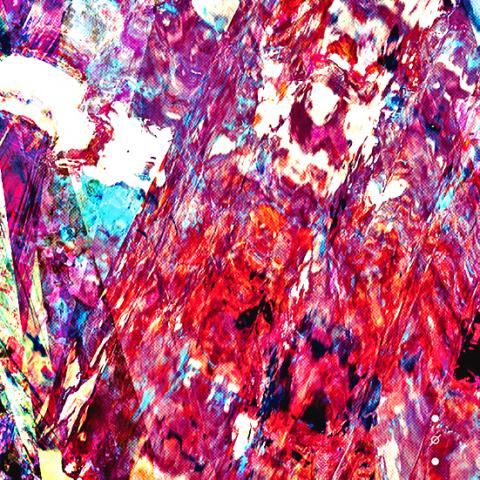With New Years Day already behind us, the upcoming two days are shaping up to be a lost weekend. So rather than fight it, I’ll embrace that feeling of being too-hungover-to-get-off-the-couch, which also happens to be a perfect mental state to look back on Taiwanese live music last year, as well as what’s coming up this year.
The news that’s hot off the presses is that Taipei’s own Muddy Basin Ramblers have been nominated for a Grammy — in CD packaging design. Their album Formosa Medicine Show, designed by the local firm Onion Design, will compete against recent albums by The Pixies, Pearl Jam, FJA Twigs and Passenger for the golden statue of that strangely upright dude. Bandleader David Chen and designer Andrew Wong will fly to LA for the awards ceremony on Feb. 8. Best of luck!
Interesting to note, Taiwan has only ever had Grammy recognition for album art, never for music. Local designer Xiao Qing-yang (蕭青陽) has been nominated four times for music packaging since 2005, but he has never won. Last year’s winner in the Recording Packaging category went to an album by a relatively small band, Reckless Kelly, but previous years saw awards go to major names including Bjork, Arcade Fire, The Black Keys and David Byrne.

Photo courtesy of Ian Kuo
A couple of major music festivals went on hiatus last year, but will back this year. The Formoz Festival (野台開唱), normally held in early August in Taipei, and the Megaport Festival (大港開唱), an annual festival in March in Greater Kaohsiung, both took a break last year following a shareholders’ shakeup at The Wall, a top music promoter.
Megaport, now in the hands of a group headed by Freddy Lim (林昶佐) of the band Chthonic (閃靈), is set to return Mar. 28 and Mar. 29 in Greater Kaohsiung’s Pier 2 District with several Japanese headliners, mostly punk or metal bands. The same weekend in Taipei, The Wall is mounting its own T Fest, which in local slang sounds like a festival for lesbians, though I am assured that is not the case. T Fest headliners will be British and Danish shoegaze bands Yuck and Mew. Both festivals happen just one week before Spring Scream. Can anyone say, “awkward”? Let the music festival wars begin.
The best music festival last year was the Heart Town Festival (山海屯音樂節) in Greater Taichung, and not just because it filled a vacuum. It had the best bands and was the most fun. The music was all raging metalcore, hardcore and punk. It rained hard every afternoon. And I have never in one day seen so many bands instruct crowds to form a wall of death, crouch down then jump up, swirl into a circle pit and so on. But the bands were at the top of their game and the crowd was massively energized. Crossfaith and Dark Rain, a couple of white-hot young bands from Japan, channeled every volt of the massive wattage behind them for butt-kicking shows.

Photo courtesy of Go chic
Most notably, Heart Town Festival was organized by a new promoter, Jimmy Liu (劉鈞輝). A new festival promoter on the scene is definitely a good thing.
After Heart Town Festival, my other best shows last year were the German avant-garde pianist and composer Nils Frahm at Legacy, the Japanese no wave punk girls of the ZZZ’s, also at Legacy, and the Idan Raichel Project, an Israeli band that played at Daniel Pearl Day, albeit without frontman Idan Raichel. Raichel had committed to the gig but at the last minute was called away to New York by Alicia Keys. Yet his band was still a whirlwind of traditional music and neo-soul, and everyone in the front was dancing. Unfortunately they were also the only ones who could hear, as the sound system was badly underpowered.
The best shows I missed was probably The National, which people raved about. Whoops.

Photo courtesy of ovds
The best performance by a Taiwanese band goes to Go Chic at The Wall last February. A Japanese promoter next to me at the show was visibly impressed, and the electro art-rock trio went off to tour Japan just after that show. Go Chic then became the first Taiwanese band to play Glastonbury. Sadly, they have taken an indefinite break, as one band member has some serious personal issues.
Another fantastic band to call it quits last year was the Deadly Vibes. They went out with a final rockabilly sendoff at Revolver in March. For almost a decade, JT Long, JD Long and Jason Copps were pound-for-pound one of the most rocking acts in Taiwan. As expats playing a locally unfamiliar, retro genre, they were perhaps doomed to small rooms and DIY tours, but they still rocked harder, better and with more commitment than anyone.
The best indie albums of the year go to Forests for No Fun, a fuzzy garage punk masterpiece, and OVDS for Heartbreak Resistance, a surprising fusion of dubstep, rap and hardcore.

Photo courtesy of forests
That’s it for last year. A new year is already upon us.

In the March 9 edition of the Taipei Times a piece by Ninon Godefroy ran with the headine “The quiet, gentle rhythm of Taiwan.” It started with the line “Taiwan is a small, humble place. There is no Eiffel Tower, no pyramids — no singular attraction that draws the world’s attention.” I laughed out loud at that. This was out of no disrespect for the author or the piece, which made some interesting analogies and good points about how both Din Tai Fung’s and Taiwan Semiconductor Manufacturing Co’s (TSMC, 台積電) meticulous attention to detail and quality are not quite up to

April 21 to April 27 Hsieh Er’s (謝娥) political fortunes were rising fast after she got out of jail and joined the Chinese Nationalist Party (KMT) in December 1945. Not only did she hold key positions in various committees, she was elected the only woman on the Taipei City Council and headed to Nanjing in 1946 as the sole Taiwanese female representative to the National Constituent Assembly. With the support of first lady Soong May-ling (宋美齡), she started the Taipei Women’s Association and Taiwan Provincial Women’s Association, where she

Chinese Nationalist Party (KMT) Chairman Eric Chu (朱立倫) hatched a bold plan to charge forward and seize the initiative when he held a protest in front of the Taipei City Prosecutors’ Office. Though risky, because illegal, its success would help tackle at least six problems facing both himself and the KMT. What he did not see coming was Taipei Mayor Chiang Wan-an (將萬安) tripping him up out of the gate. In spite of Chu being the most consequential and successful KMT chairman since the early 2010s — arguably saving the party from financial ruin and restoring its electoral viability —

It is one of the more remarkable facts of Taiwan history that it was never occupied or claimed by any of the numerous kingdoms of southern China — Han or otherwise — that lay just across the water from it. None of their brilliant ministers ever discovered that Taiwan was a “core interest” of the state whose annexation was “inevitable.” As Paul Kua notes in an excellent monograph laying out how the Portuguese gave Taiwan the name “Formosa,” the first Europeans to express an interest in occupying Taiwan were the Spanish. Tonio Andrade in his seminal work, How Taiwan Became Chinese,